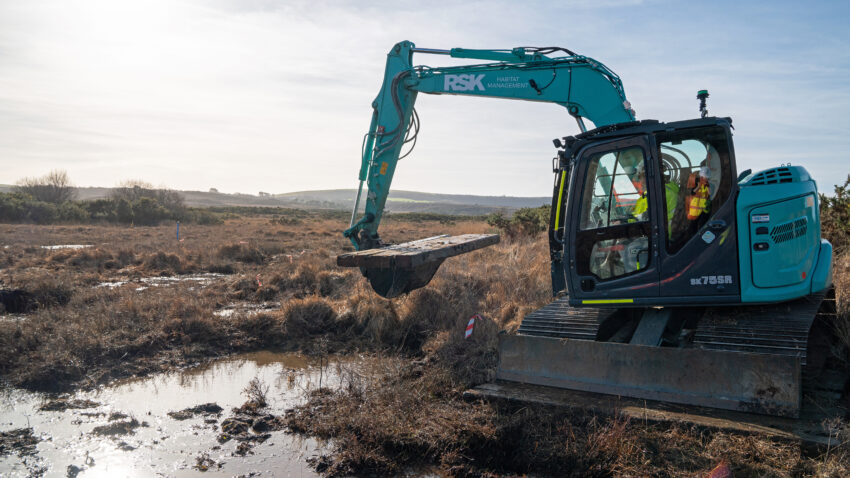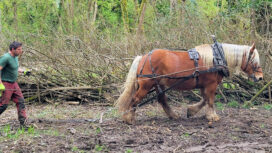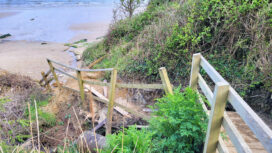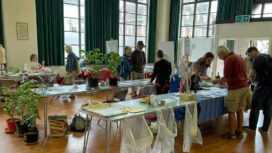While spiders in bogs aren’t always welcome, there’s hope that the restoration of the peatland habitat in Studland, Dorset will see the widespread return of the rare raft spider, along with bog orchids, carnivorous plants and other wetland species.
On the National Trust owned land, old drainage ditches are being partially blocked to force the water to flow across the Agglestone and Greenlands area, to create an ideal boggy habitat or mire, for rare insects and plants.
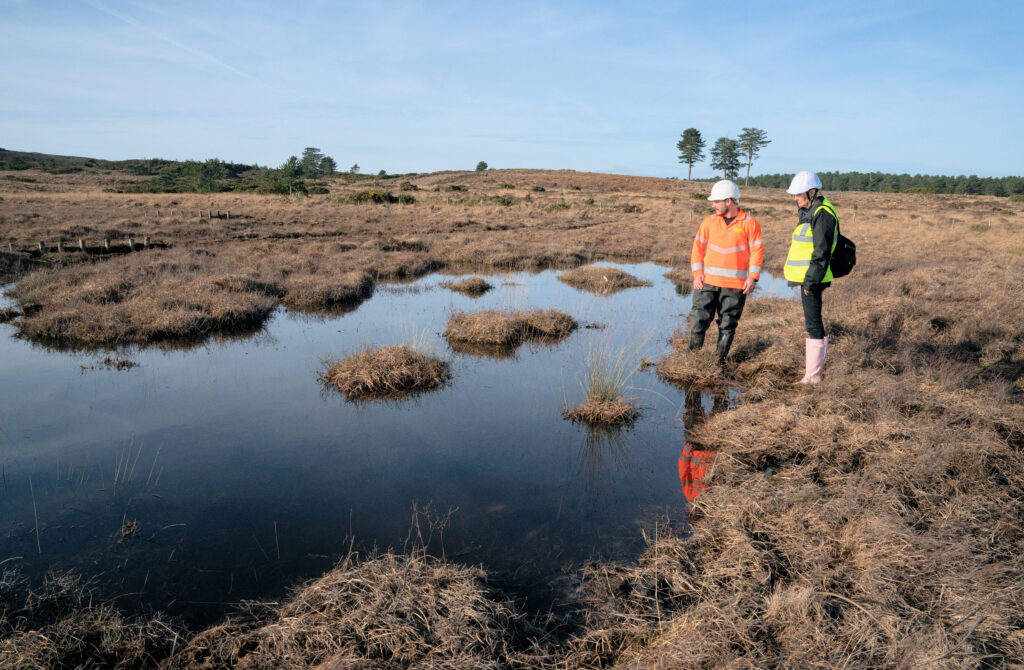
The National Trust project team inspect work to change the flow of water at Agglestone and Greenlands Mire
Blocking up old ditches
The work is being funded by the Dorset Peat Partnership which received a £750,000 grant from a larger government pot of £50 million, boosted by another £250,000 from other partners to rewet 172 hectares of damaged peat bogs.
Awarded in August 2023, the money is aimed at restoring 16 peat bogs across the county over the next two years, including the area in Studland.
The first phase of the Studland scheme is now underway with heather bales, timber and earth bunds made of peaty soil placed across old ditches, which were originally dug to drain the boggy areas so the land could be used for conifer plantations or to graze farm animals.
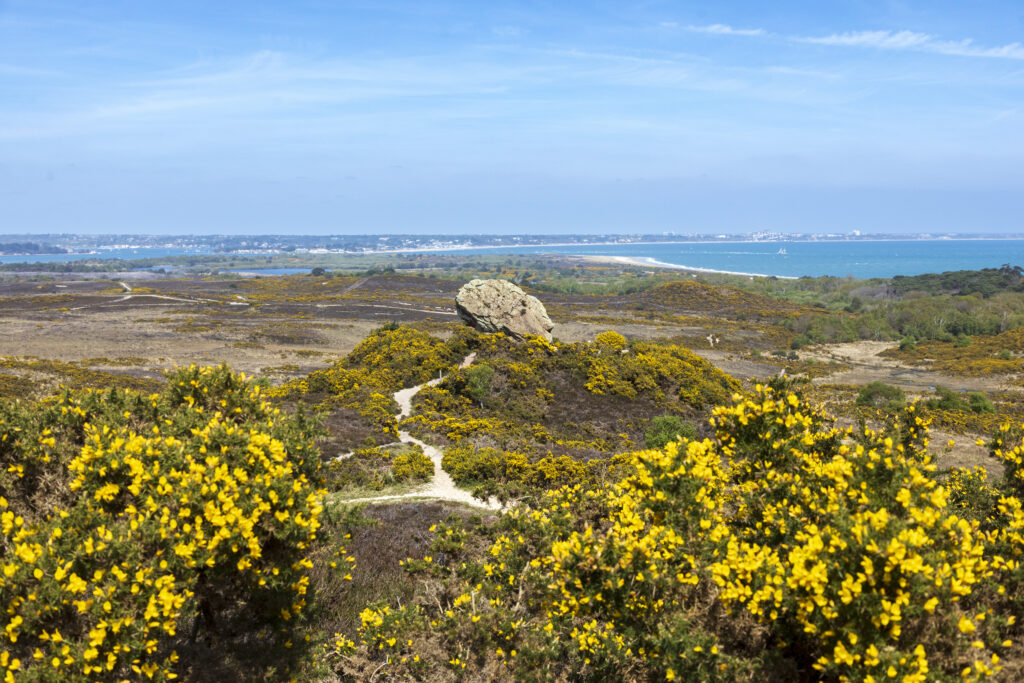
The area around Agglestone Rock has been drained over the decades
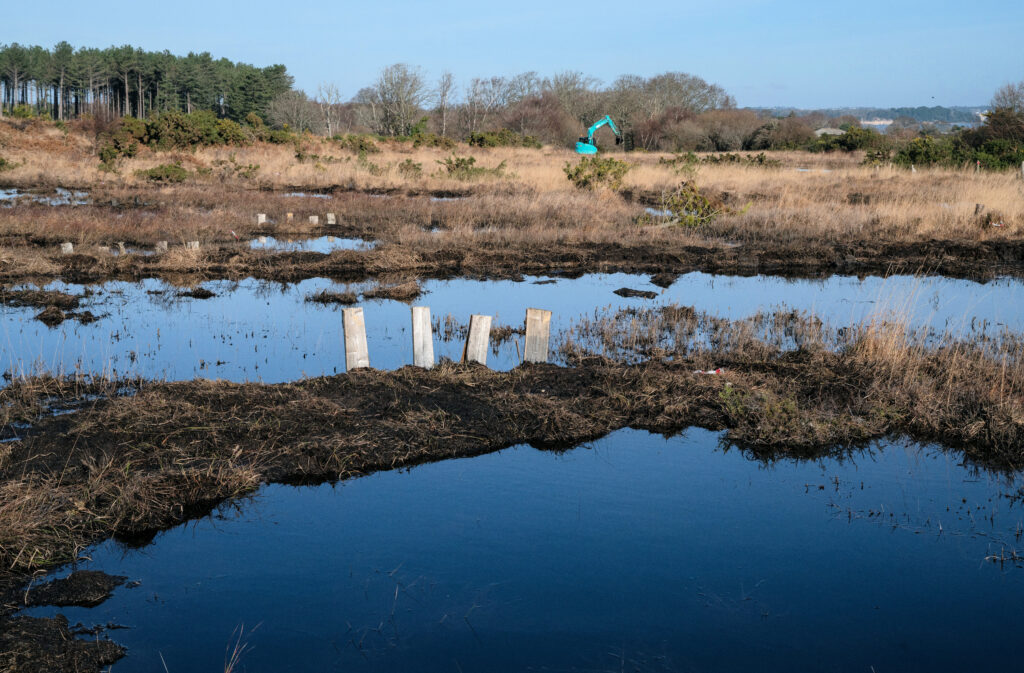
The plan is to rewet the land and restore the peat bogs over the next two years
Plants turn into new peat
David Brown, the National Trust’s lead ecologist in Purbeck, said:
“Spreading the flow of water across the mires will create a wetter habitat where mosses and other rare plants like marsh saxifrage and tiny bog orchids can thrive.
“Under the acidic, waterlogged conditions, mosses and other plants never fully decompose, and over time they turn into new peat which keeps their carbon locked up instead of releasing it into the atmosphere.
“Purbeck’s peat forming mires have enormous significance for rare insects, plants and other wildlife, including bog hoverflies and birds such as skylarks, as well as one of our few long-term carbon storage habitats.”
Re-wetting the area will also improve drought and fire resilience by holding more water in the land during the summer, as well as helping to prevent flooding by soaking up heavy rainfall.
One benefit should be to help prevent flooding on Ferry Road near Knoll Beach, Studland, as peat soaks up heavy rainfall and releases it slowly.
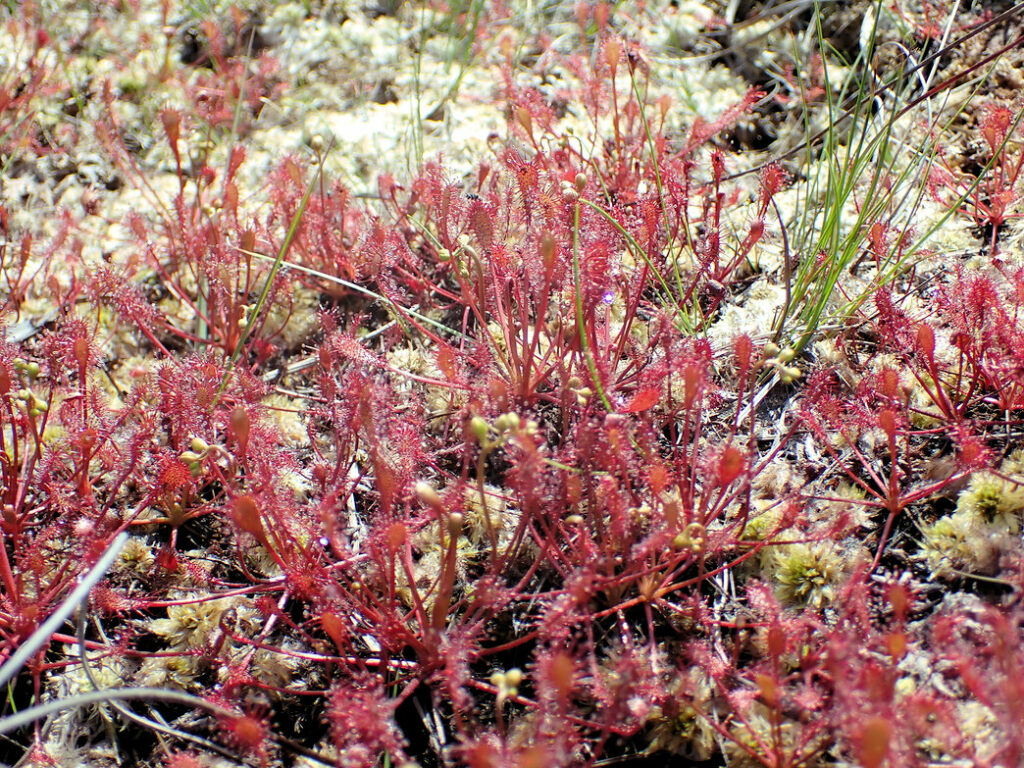
Carnivorous sundew plants trap insects in their sticky tentacles
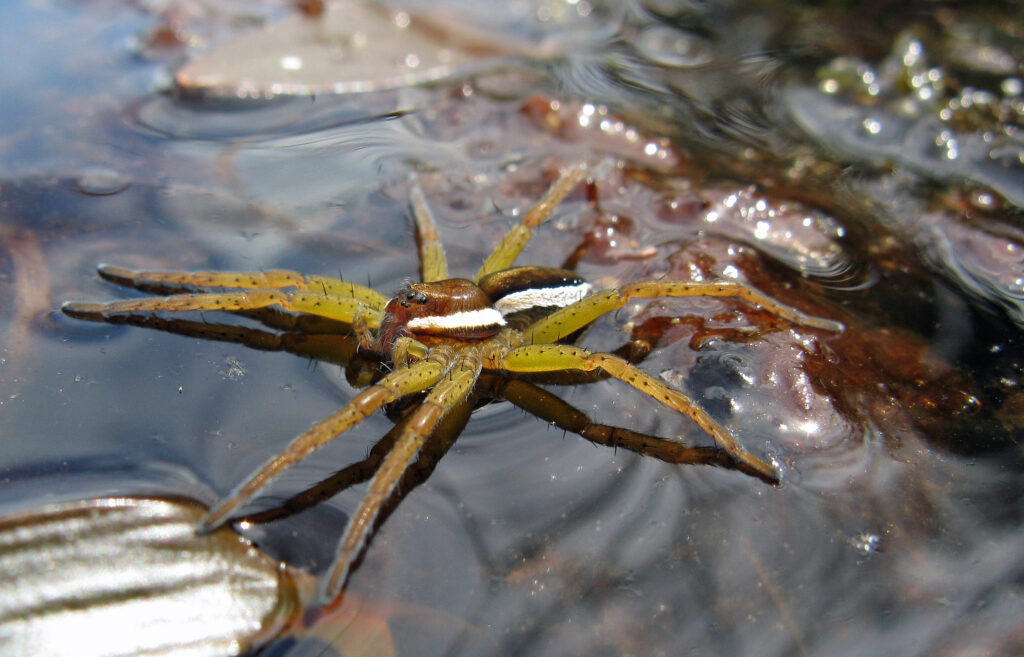
An agressive hunter, the raft spider can be found floating on bog pools
“Nationally rare raft spider”
David Brown added:
“A new wetland ecosystem should establish itself quite quickly, providing a lifeline for many rare species that have been under threat due to the disappearance of these boggy habitats across the country.
“This includes many species of invertebrates, like the nationally rare raft spider, which floats on the bog pools and is a very aggressive hunter.
“The insects in turn attract birds and mammals, including rare nightjars that nest on the heathland and feed over the mires, and even benefit some rare plant species that grow on the peat bogs, including carnivorous plants which rely on capturing and digesting insects to supplement their diet on the nutrient-poor bog.
“Many people don’t realise they grow in Dorset, but one is actually called the Godlingston Sundew, because it was originally found on Godlingston Heath in Purbeck.”
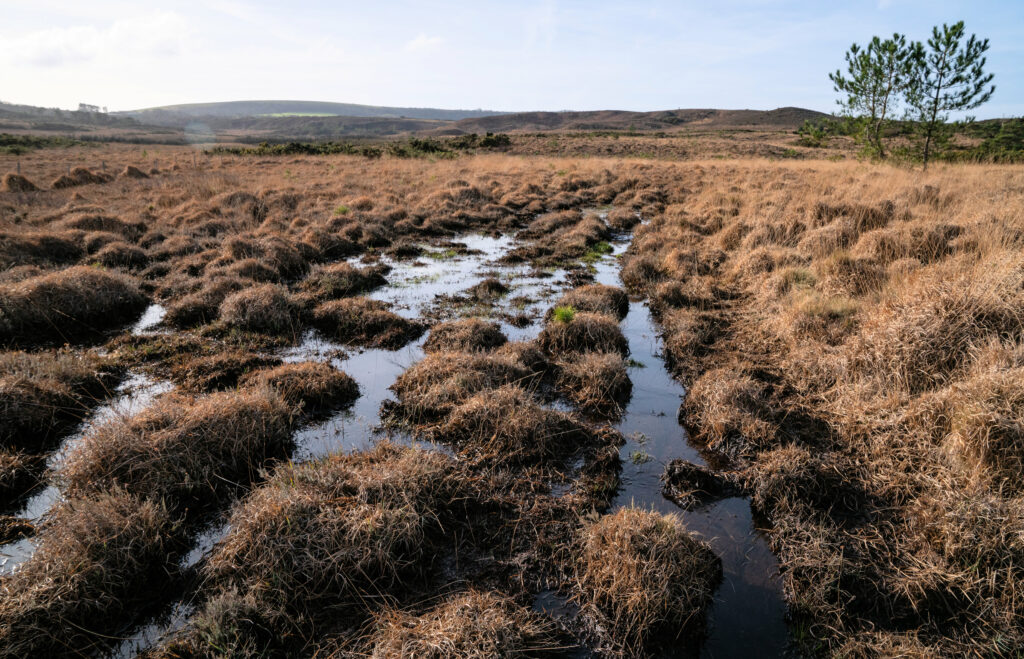
Waterlogged conditions prevents mosses from fully decomposting and instead creates new peat which captures the carbon rather than releasing it
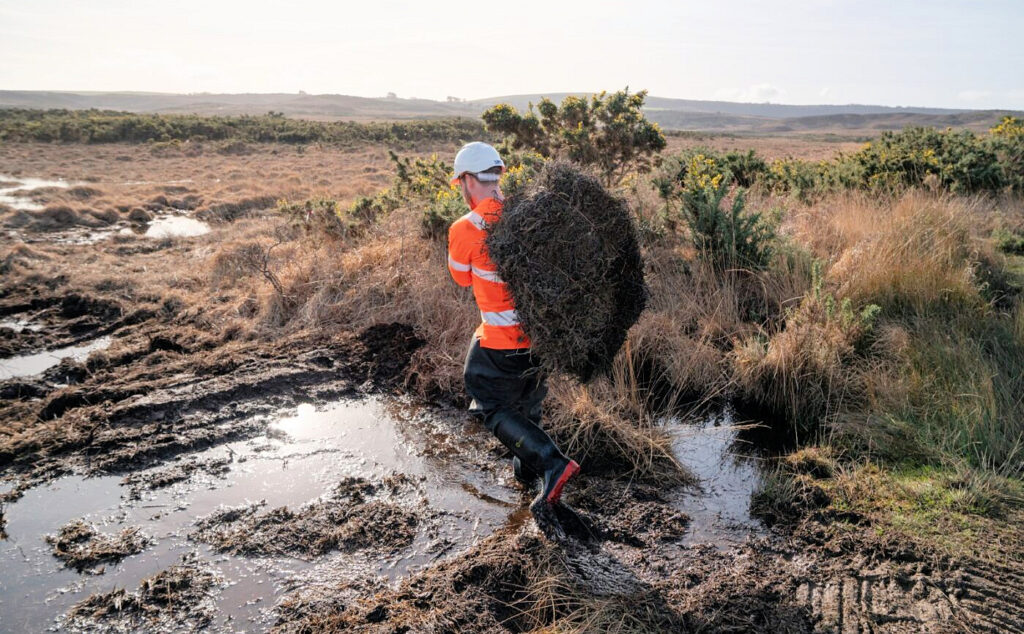
Damming ditches with hay bales will force the water to soak into the land rather than draining quickly away
“There is no time to waste”
Another part of the project includes cutting back invasive purple moor grass, which has thrived in the face of recent droughts conditions and is threatening to smother other more delicate wetland species.
Senior national consultant for nature conservation at the National Trust Caroline Thorogood said:
“The work in Purbeck is a crucial next step in delivering on our commitment to have all the degraded peatlands in our care under restoration by 2040.
“There is no time to waste on restoring these important habitats that so many unique species rely on, and we are absolutely delighted with the level of support from Natural England’s Nature for Climate Peatland Grant Scheme that is making this important leap forward possible, both at National Trust places and beyond.”
Further information
- More about the Dorset Peat Partnership
